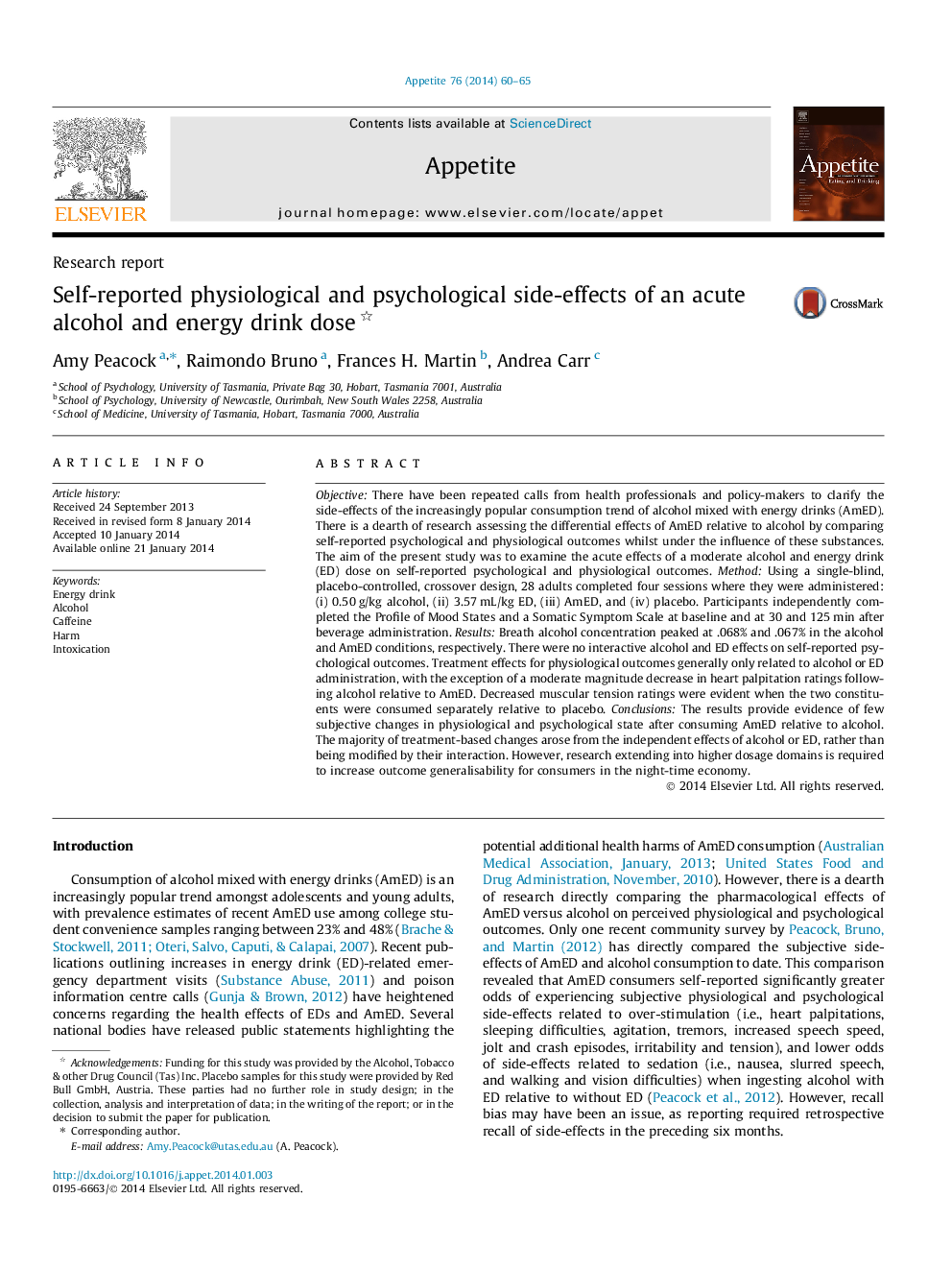| کد مقاله | کد نشریه | سال انتشار | مقاله انگلیسی | نسخه تمام متن |
|---|---|---|---|---|
| 939496 | 1475404 | 2014 | 6 صفحه PDF | دانلود رایگان |
• Assessed self-reported outcomes of a moderate alcohol and low energy drink dose.
• No interactive treatment effects were found for psychological outcomes.
• Muscular tension ratings decreased when the constituents were consumed separately.
• No appreciable interactive effects were generally evident following these doses.
Objective: There have been repeated calls from health professionals and policy-makers to clarify the side-effects of the increasingly popular consumption trend of alcohol mixed with energy drinks (AmED). There is a dearth of research assessing the differential effects of AmED relative to alcohol by comparing self-reported psychological and physiological outcomes whilst under the influence of these substances. The aim of the present study was to examine the acute effects of a moderate alcohol and energy drink (ED) dose on self-reported psychological and physiological outcomes. Method: Using a single-blind, placebo-controlled, crossover design, 28 adults completed four sessions where they were administered: (i) 0.50 g/kg alcohol, (ii) 3.57 mL/kg ED, (iii) AmED, and (iv) placebo. Participants independently completed the Profile of Mood States and a Somatic Symptom Scale at baseline and at 30 and 125 min after beverage administration. Results: Breath alcohol concentration peaked at .068% and .067% in the alcohol and AmED conditions, respectively. There were no interactive alcohol and ED effects on self-reported psychological outcomes. Treatment effects for physiological outcomes generally only related to alcohol or ED administration, with the exception of a moderate magnitude decrease in heart palpitation ratings following alcohol relative to AmED. Decreased muscular tension ratings were evident when the two constituents were consumed separately relative to placebo. Conclusions: The results provide evidence of few subjective changes in physiological and psychological state after consuming AmED relative to alcohol. The majority of treatment-based changes arose from the independent effects of alcohol or ED, rather than being modified by their interaction. However, research extending into higher dosage domains is required to increase outcome generalisability for consumers in the night-time economy.
Journal: Appetite - Volume 76, 1 May 2014, Pages 60–65
